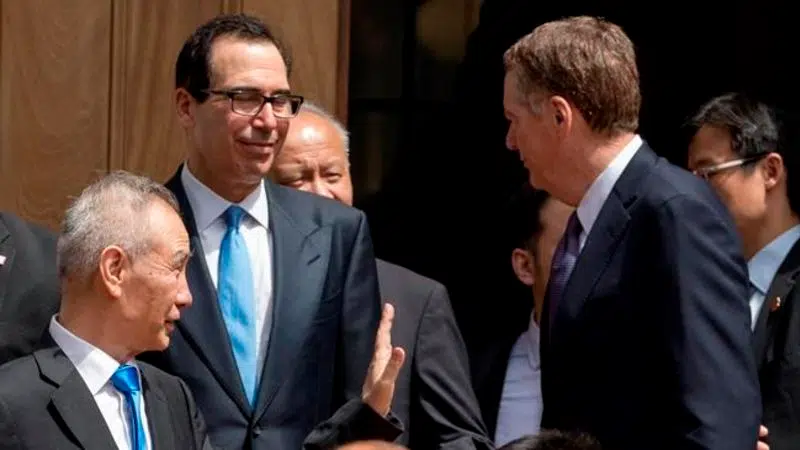
US hikes tariffs on Chinese goods, Beijing vows retaliation
WASHINGTON — U.S. and Chinese negotiators resumed trade talks Friday under increasing pressure after President Donald Trump raised tariffs on $200 billion in Chinese goods and Beijing promised to retaliate, escalating a battle over China’s technology ambitions.
The Trump administration raised duties on nearly half of Chinese imports to 25% from 10%. China’s Commerce Ministry said it would impose “necessary countermeasures” but gave no details.
The increase went ahead even after American and Chinese negotiators began more talks in Washington aimed at ending a dispute that has disrupted billions of dollars in trade and shaken global financial markets.


